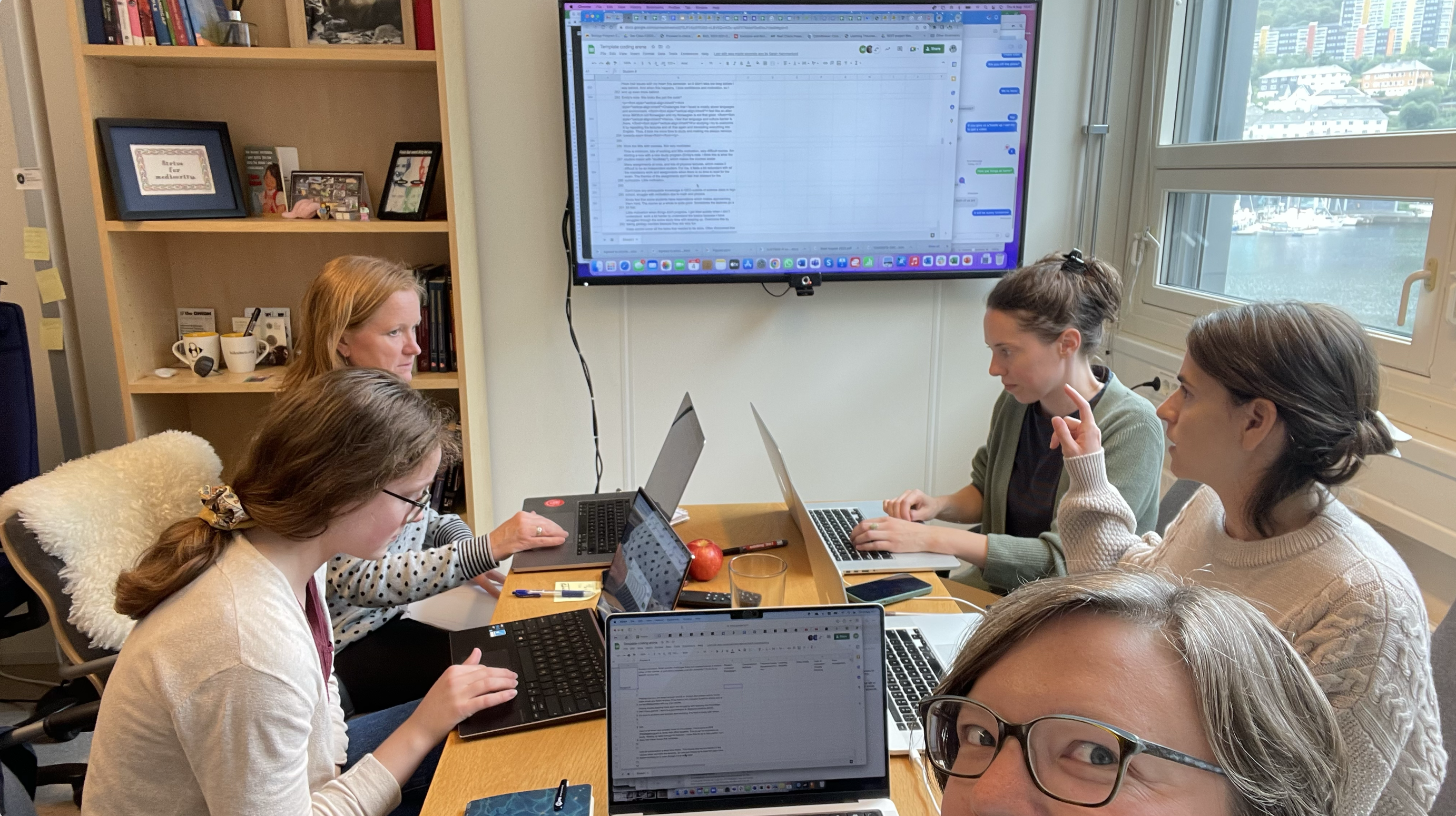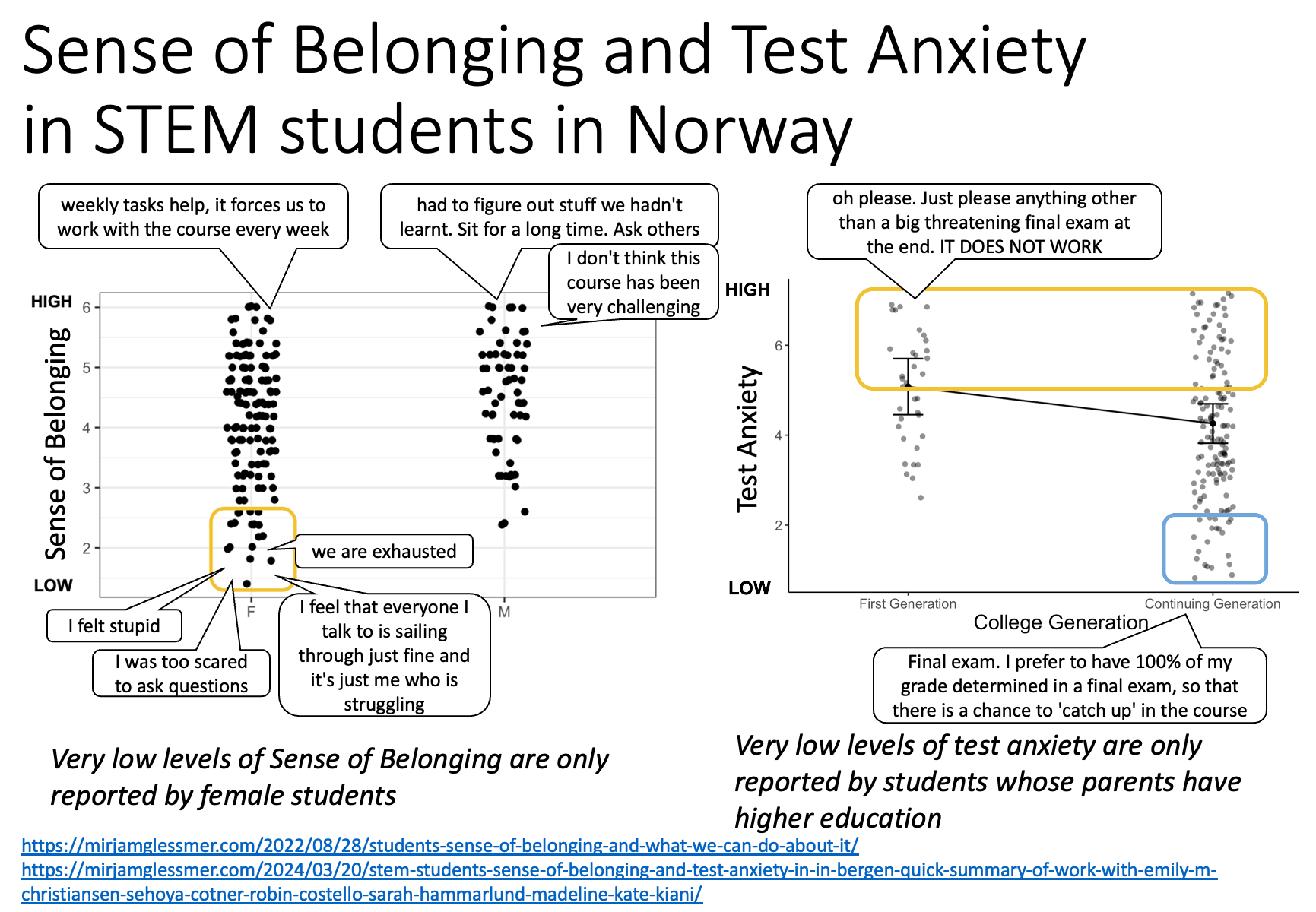
Published! “STEM Students Prefer Assessment Practices Known to Reduce the Impact of Test Anxiety” by Costello et al. (2025)
Back in 2022, I worked on a really cool study on belonging and test anxiety together with the awesome colleagues you see in the featured image: aside from me taking the selfie, from left to right there are Emily Christiansen, Sehoya Cotner, Sarah Hammarlund, and Robin Costello working on coding responses (missing only Kate Kiani […]

